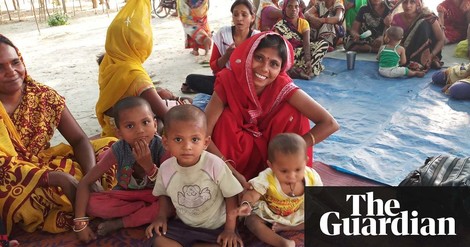Your podcast discovery platform
Curious minds select the most fascinating podcasts from around the world. Discover hand-piqd audio recommendations on your favorite topics.

piqer for: Global finds Health and Sanity Doing Good
Bangalore-based Rashmi Vasudeva's journalism has appeared in many Indian and international publications over the past decade. A features writer with over nine years of experience heading a health and fitness supplement in a mainstream Indian newspaper, her niche areas include health, wellness, fitness, food, nutrition and Indian classical Arts.
Her articles have appeared in various publications including Mint-Wall Street Journal, The Hindu, Deccan Herald (mainstream South Indian newspaper), Smart Life (Health magazine from the Malayala Manorama Group of publications), YourStory (India's media technology platform for entrepreneurs), Avantika (a noir arts and theatre magazine), ZDF (a German public broadcasting company) and others.
In 2006, she was awarded the British Print-Chevening scholarship to pursue a short-term course in new-age journalism at the University of Westminster, U.K. With a double Masters in Globalisation and Media Studies from Aarhus Universitet (Denmark), University of Amsterdam and Swansea University in Wales, U.K., she has also dabbled in academics, travel writing and socio-cultural studies. Mother to a frisky toddler, she hums 'wheels on the bus' while working and keeps a beady eye on the aforementioned toddler's antics.
Women For Mothers: Preventing Deaths During Childbirth In An Indian Village
In India, when nosey relatives are curious about a couple’s plans to start a family (or not), the question they usually ask is, ‘Is there any good news?’
Seems there is some real ‘good news’ now: the WHO declared last week that there has been ‘ground-breaking progress’ in reducing maternal mortality rates (MMR) in India. According to the WHO, the MMR has declined by a whopping 77 per cent; from 556 deaths per 100,000 live births in 1990 to 130 deaths per 100,000 in 2016.
Coming on the heels of this announcement is this heartening tale of the women of Purabgaon, a small village in the state of Uttar Pradesh in North India. Amethi, the district to which this village belongs, is notorious for its MMR – one of the highest in the world at 451 deaths per 100,000 live births. This is largely due to anaemia and a basic lack of awareness. But the Purabgaon women are surviving childbirths (90 per cent of them) and are declaring so. ‘We no longer die in childbirth’, proclaim posters hung in the village.
The author largely credits this welcome change to a group of 20 local women trained and led by Gita Gupta of ‘Save the Mother’, a movement that began in 20 villages and has now expanded to more than 1,000 villages across three states. Gupta ropes in local women, educates them about pregnancy, nutrition, delivery and childcare. These women then make up lyrics to popular romantic folk tunes and sing to the women of the village about IUDs, breastfeeding and iron supplements in familiar melodies.
So effective has the effort been that last year, not a single mother died in childbirth in the village. Of course, women still are expected to marry young and produce babies pronto. But the project has made an impact. Many women leave their homes to attend the group’s meetings and feel empowered enough to take part in family decisions. They have learnt to insist on hospital delivery and refuse to be bullied into doing household chores barely half an hour after birth – which they did earlier.
